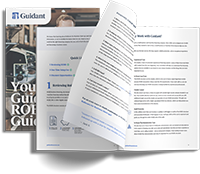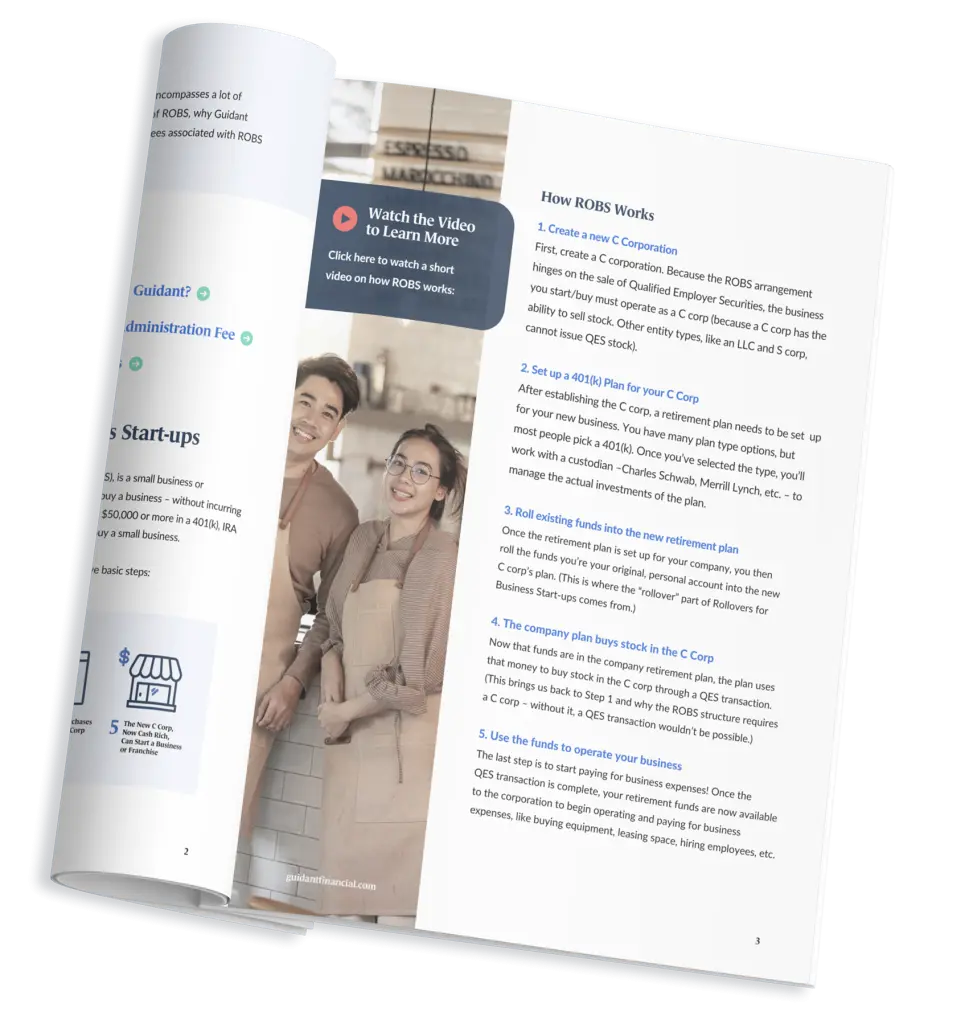Have you ever wanted to leverage your retirement savings to venture into the lucrative real estate industry? After all, real estate in many parts of the country has shown major price appreciation over the past several years. At the same time, many people’s 401(k) or Individual Retirement Account (IRA) may have risen to heights along with the stock market, as many of these accounts are invested at least partly in equities. The combination of robust retirement accounts and impressive real estate returns across the country may make moving into the real estate industry very tempting for aspiring and current small business owners.
Real Estate Is a Very Attractive Investment and Business
There’s no doubt that real estate can be an extremely attractive investment or business, as it offers the potential for passive income (rents) and long-term price appreciation.
In addition, real estate offers many financial advantages. First, it can diversify 401(k) or Individual Retirement Account (IRA) funds. Tax-advantaged retirement funds are usually invested in asset classes such as stocks, bonds, or cash. Diversification is a strategy that ensures that your investment portfolio is made up of asset classes with varying risk and reward profiles so that you can realize the benefits of price appreciation with some asset classes while others protect you against common investment risks (such as a drop in stock prices).
Second, real estate as an asset class offers multiple tax benefits, such as depreciation, deductions of mortgage interest and property taxes, and more.
Can You Use Retirement Funds to Invest in Real Estate?

So, the idea of using your retirement funds to invest in real estate is a very smart one. But it does require some strategic planning.
Unfortunately, it’s not easy or even always possible to take an existing retirement fund and invest directly in real estate. Most 401(k)s offered by employers provide a limited number of investment options – usually divided among stocks, bonds, and cash. In addition, the Internal Revenue Service (IRS) does not allow 401(k)s to invest in real estate. While it’s possible to open a self-directed IRA and invest in real estate, such a move is complicated and expensive, requiring a custodian and fees. Not only that, but you may not be able to utilize the multiple tax advantages that are one of the main benefits of real estate.
It is possible, of course, to withdraw your investment funds and either begin a real estate business or invest in real estate. But that can have significant drawbacks. First, if you are not yet 59½ years old, the IRS will levy a 10 percent fine for early withdrawal on the funds. Second, you will be taxed on the funds, at your current rate. All in all, you can end up with far less money to invest than you withdraw. In addition, your funds will no longer enjoy the tax-free appreciation that 401(k) and IRA funds do.
Using ROBS to Start a Real Estate Company
But there is a way to utilize your retirement funds to invest in real estate without fines or taxation. This method, known as Rollovers for Business Startups (ROBS), rolls over your 401(k) or IRA funds and uses the cash to start or invest in a business. It also results in a company with a tax-advantaged retirement plan, so you can continue to invest retirement funds in a tax-advantaged manner. ROBS is completely legal and tax-compliant, allowing you to flexibly use your retirement funds to start a business and fund your retirement.
ROBS also allows you to fund a business debt free, so you don’t have debt service as an ongoing expense sapping your cash flow. You also don’t have to go through a business loan process, which can be time-consuming and complicated.
How ROBS Works
To avoid penalties and taxation on your withdrawn retirement funds, ROBS must follow a specific method of starting a new company for your real estate endeavors.
First, you decide how much to withdraw from your existing tax-advantaged retirement funds. (By the way, a number of tax-advantaged retirement funds can be utilized for ROBS, not just 401(k)s and IRAs. See here for a list.) Usually, the amount should be at least $50,000.
Second, you open a C Corporation. A ROBS transaction must use a C Corp because ROBS requires the sale of Qualified Employer Securities (QES), which only a C Corp, out of all business entities, is eligible to do. You then open a tax-advantaged retirement fund for the new C Corp., such as a 401(k), open to all employees, including yourself. You then roll over the funds from your tax-advantaged retirement accounts to the C Corp retirement fund. Those funds are used to purchase stock in the new C Corp. Those funds are then available to start operating the new C Corp — your real estate business.
Your new C Corp must follow a number of legal and regulatory requirements set up by the IRS, the Department of Labor (DOL) and the Employee Retirement Income Security Act (ERISA) for ROBS-funded companies. It’s helpful to work with an administrator such as Guidant Financial for ROBS, which can ensure that you keep abreast of all the requirements and reporting mandates. See How to Pick the Right ROBS Provider.
Some of these requirements bear on running a real estate company. Briefly, you cannot be a passive investor in a business started with ROBS funds. For that reason, you cannot simply purchase and have someone else manage it; you need to be a bona fide employee in any small real estate business you invest in or fund using ROBS. ROBS must also be used to start or purchase operating companies, actively offering a good or service in a market. The business must also be based in the United States.
Once those requirements are met, there are several types of real estate companies you can start or invest in with ROBS.
What is ROBS? We’ll break down Rollovers for Business Startups (ROBS) in a nutshell — from its core benefits to potential drawbacks here.
Real Estate Operating Company
A real estate operating company (REOC) invests in and often manages real estate properties. REOCs are publicly traded companies.
Most REOCS own commercial real estate, such as office buildings, malls, hotels, office parks, parking garages, warehouses and more. Many also own residential properties such as multifamily homes (apartment buildings, condominiums and so on).
Property Management Companies
Property management companies do precisely what their name implies: manage properties owned by other entities.
The owner can be either a landlord, a passive investor, or a real estate developer. Property management companies work with multiple real estate types, such as residential, industrial and commercial.
Property management companies are responsible for the maintenance and upkeep of the property, including proactively inspecting the properties, hiring workers to maintain and repair both the real estate and the grounds, and knowing applicable laws and regulations. Property management companies may also have responsibility for tenants, ranging from screening prospective tenants to running credit checks to collecting rents.
Property management companies need to be aware of laws and regulations of the state in which the property is located, as state laws can vary widely. You may also need to be licensed and fulfill certain legal requirements to manage property in a given location.
While you can definitely start or purchase your own property management company, aspiring small business owners should also know that there are a number of property management franchises in the U.S. ROBS can be used to fund franchises. Franchises can be an advantageous way to enter the real estate business, as franchises generally offer training, guidance, and mentorship.
Pros and Cons of REOCs and Property Management Companies
Pros
As discussed earlier, real estate, in general, can be an advantageous investment. Real estate prices and rents are both rising robustly in many areas of the country. Thus, real estate allows you to benefit from rising rents and potential price appreciation in an asset class diversified from stocks and bonds. (Note, of course, that these can only be realized if you have a stake in the real estate you are operating or managing.)
REOC and property management companies both allow you to avoid one of the chief risks of real property, which is liquidity risk. Unlike cash or stocks, which can be quickly sold in a liquid market, real estate sales and realizing proceeds can take considerable time.
These companies also cushion business owners against another real estate risk type: interest rate risk. For real estate investors, rising interest rates can make properties harder to sell, because they become more expensive to buy.
Cons
Both types of real estate companies require you to know the area in which you operate. Real estate prices and issues are not uniform across the country. Some areas might be doing well, but others may be struggling.
If you own property as part of these businesses, you will be subject to liquidity risk and real estate risk. Your business may also be subject to the effects of both these risks if real estate becomes hard to sell or unattractive to potential buyers.
Real estate is very affected by business cycles. Economic downturns can pose a risk to real estate.
Let Guidant Financial Help
At Guidant Financial, we specialize in helping small business owners find funding through ROBS and other methods. We can help you research a business, assist you in financial planning, and recommend consultations with legal and financial professionals to ensure that ROBS is properly set up and administered.
Call us today at 425-289-3200 for a free, no-pressure business consultation to get started — or pre-qualify in minutes for business financing now!

“I knew that I needed a funding partner that would be a reflection of the community we are trying to serve — and that is really where Guidant shines.”
— Daniella Cornue, Le Village Cowork
Read the stories of REAL small business owners who work with Guidant.











